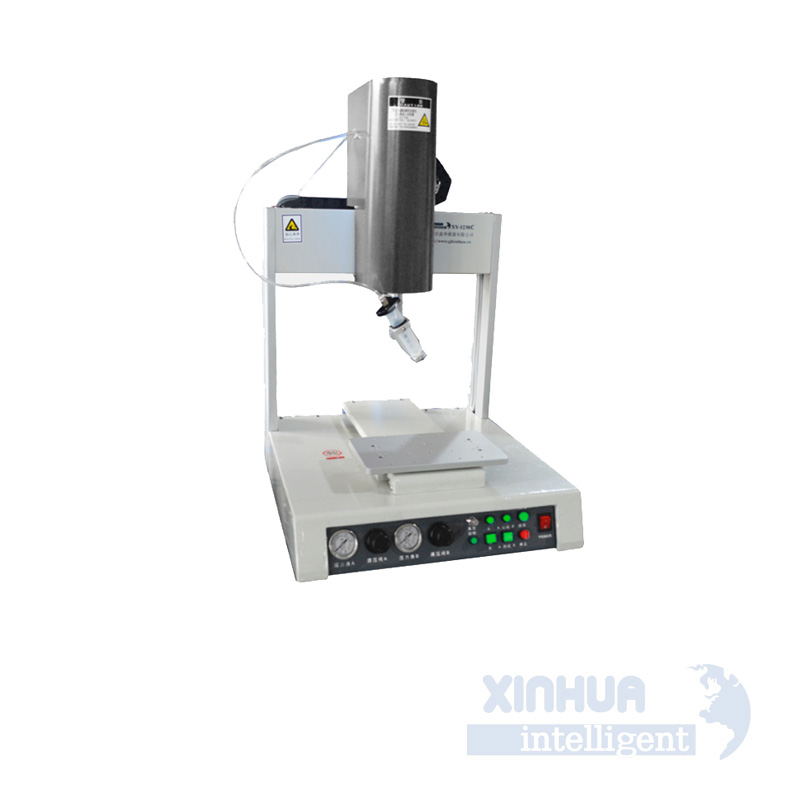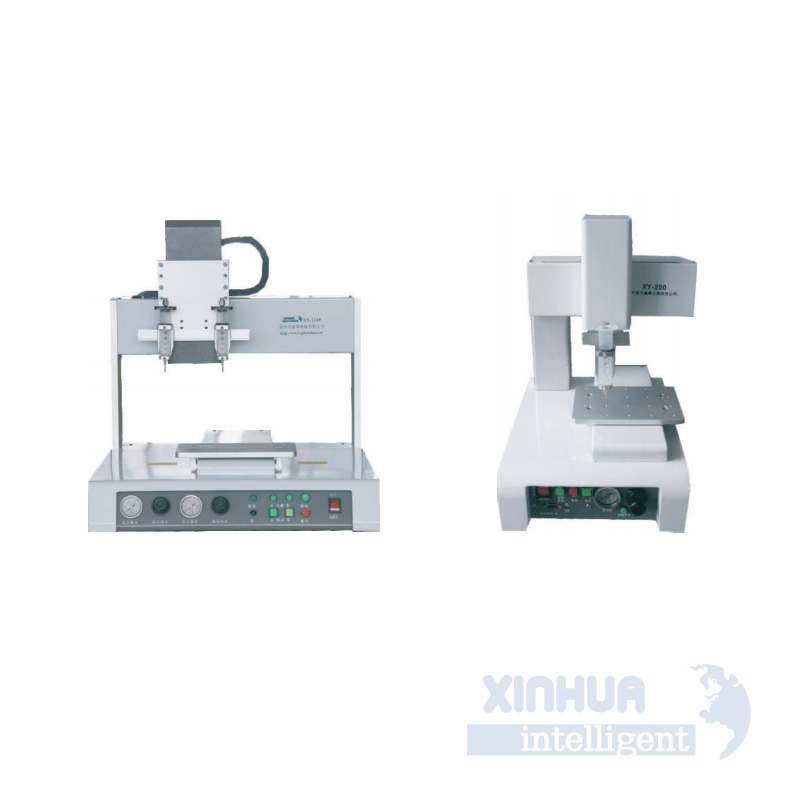
Title: Torque Controlled Screw Machines: Overcoming Challenges and Delivering Precision in Modern Manufacturing
In the world of precision manufacturing, especially within industries like automotive, aerospace, electronics, and medical devices, the accuracy and consistency of fastening operations are critical. One technology that has revolutionized this process is the torque controlled screw machine. These advanced systems ensure that screws are tightened to exact specifications, minimizing errors, reducing rework, and improving overall product quality.
However, despite their benefits, implementing torque controlled screw machines is not without its challenges. In this article, we will explore the most common pain points associated with these systems, discuss practical and technical solutions, highlight real-world applications, and conclude with a call-to-action for professionals seeking reliable automation partners—like Xinhua Intelligent.
—
1. Common Pain Points or Challenges
While torque controlled screw machines offer significant advantages, manufacturers often face several challenges when integrating or operating these systems:
A. Inconsistent Torque Application
One of the primary concerns is inconsistent torque application across different joints or assembly lines. Variations can arise due to tool calibration drift, improper setup, or environmental factors such as temperature and humidity affecting material properties.
B. Tool Wear and Calibration Drift
Screwdrivers and other fastening tools experience wear over time, which can lead to deviations in torque output. If not regularly monitored and calibrated, this drift can result in under- or over-tightened fasteners, leading to quality issues or safety risks.
C. Integration Complexity with Existing Systems
Many manufacturers struggle with integrating torque controlled screw machines into existing production lines or MES (Manufacturing Execution Systems). Compatibility issues between software platforms, data formats, and communication protocols can delay implementation and increase costs.
D. Lack of Real-Time Monitoring and Feedback
Without proper monitoring systems in place, operators may not detect torque inconsistencies until after assembly, leading to costly rework or recalls. Traditional systems often lack the capability to provide real-time feedback or traceability.
E. Operator Training and Human Error
Even with automated systems, human involvement remains crucial. Improper operation, incorrect parameter settings, or failure to follow standard procedures can undermine the effectiveness of even the most advanced torque control systems.
—
2. Practical and Technical Solutions
To overcome the aforementioned challenges, manufacturers must adopt a combination of technological advancements, best practices, and strategic planning.
A. Advanced Torque Sensors and Closed-Loop Control
Modern torque controlled screw machines utilize closed-loop feedback systems that continuously monitor torque and angle during fastening. High-precision sensors detect deviations in real time and adjust the system accordingly, ensuring consistent results across thousands of cycles.
B. Predictive Maintenance and Tool Life Management
Implementing predictive maintenance strategies using IoT-enabled tools allows manufacturers to track wear patterns and schedule calibrations before performance degrades. Some systems use AI algorithms to predict tool life and alert operators when parts need replacement.
C. Seamless Integration via Industry 4.0 Protocols
To address integration challenges, manufacturers should opt for torque controlled screw machines that support Industry 4.0 standards, including OPC UA, PROFINET, EtherCAT, and MQTT. These protocols enable seamless communication with PLCs, SCADA systems, and MES platforms, streamlining data flow and enhancing visibility across the factory floor.
D. Real-Time Data Acquisition and Traceability
Equipping systems with real-time data acquisition modules ensures every fastening operation is logged and traceable. This includes torque values, angle readings, timestamps, and operator IDs. Cloud-based dashboards allow remote monitoring and analysis, enabling proactive decision-making.
E. Comprehensive Training Programs
To minimize human error, companies should invest in operator training programs that cover system operation, troubleshooting, and safety protocols. Augmented reality (AR) interfaces and digital work instructions can also guide operators through complex tasks step-by-step, reducing reliance on memory or experience.
—
3. Real-World Applications

Torque controlled screw machines have found widespread adoption across various industries where precision, repeatability, and compliance are paramount.
A. Automotive Manufacturing
In automotive assembly lines, torque-controlled systems are used to tighten critical components such as engine blocks, transmission cases, and brake calipers. For example, major OEMs like BMW and Toyota employ fully automated torque-controlled screw machines to ensure each vehicle meets stringent safety and quality standards.
B. Aerospace Industry
Aerospace applications demand extreme reliability due to the high-stakes nature of flight safety. Fastening systems in aircraft engines, landing gear, and avionics require precise torque control to prevent failures. Companies like Boeing and Airbus integrate smart screw machines with built-in torque verification systems to meet FAA and EASA regulations.

C. Electronics Assembly
Miniaturization in the electronics industry requires extremely precise torque settings. Devices such as smartphones, laptops, and medical equipment use micro-screws that can be easily damaged by over-torquing. Torque-controlled machines ensure gentle yet secure fastening, preserving component integrity.
D. Medical Device Manufacturing
Medical devices must adhere to strict ISO and FDA standards. Manufacturers use torque-controlled screw machines to assemble surgical instruments, diagnostic equipment, and implantable devices. Each fastening operation is recorded for audit trails and regulatory compliance.
E. Consumer Goods Production
From appliances to toys, consumer goods manufacturers rely on torque-controlled systems to maintain product consistency at scale. Automated screw machines reduce labor costs while increasing throughput and quality assurance.
—
4. Conclusion: Partner with Xinhua Intelligent for Reliable Torque Control Solutions
As manufacturing processes become increasingly automated and data-driven, the role of torque controlled screw machines continues to grow in importance. However, selecting the right system—and ensuring it performs reliably over time—requires more than just hardware. It demands expertise in integration, calibration, maintenance, and continuous improvement.
This is where Xinhua Intelligent comes in. As a leading provider of intelligent fastening solutions, Xinhua offers a comprehensive range of torque controlled screw machines designed for precision, durability, and ease of integration. With features like real-time torque monitoring, IoT connectivity, and user-friendly HMI interfaces, our systems empower manufacturers to achieve higher efficiency, better quality control, and reduced downtime.
Whether you’re building electric vehicles, assembling medical devices, or producing consumer electronics, Xinhua Intelligent delivers tailored automation solutions that meet your specific needs.
—
Call to Action (CTA):
Ready to elevate your assembly line with cutting-edge torque control technology? Contact Xinhua Intelligent today to speak with one of our automation experts. Visit [www.xh-intelligent.com](http://www.xh-intelligent.com) or email us at sales@xh-intelligent.com to request a consultation or product demo. Let’s build smarter, faster, and more precisely—together.

